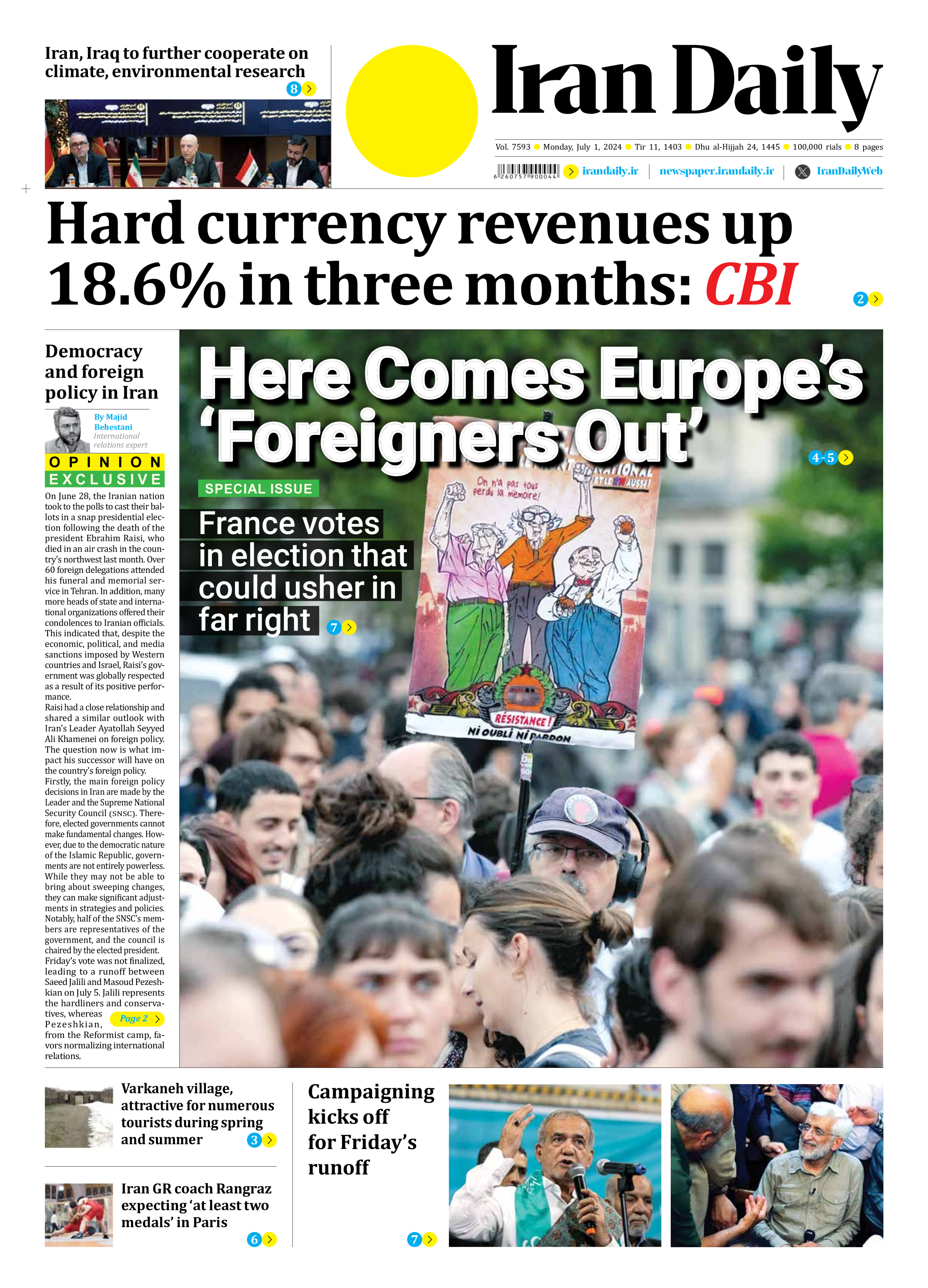
Democracy and foreign policy in Iran
By Majid Behestani
International relations expert
On June 28, the Iranian nation took to the polls to cast their ballots in a snap presidential election following the death of the president Ebrahim Raisi, who died in an air crash in the country’s northwest last month. Over 60 foreign delegations attended his funeral and memorial service in Tehran. In addition, many more heads of state and international organizations offered their condolences to Iranian officials. This indicated that, despite the economic, political, and media sanctions imposed by Western countries and Israel, Raisi’s government was globally respected as a result of its positive performance.
Raisi had a close relationship and shared a similar outlook with Iran’s Leader Ayatollah Seyyed Ali Khamenei on foreign policy. The question now is what impact his successor will have on the country’s foreign policy.
Firstly, the main foreign policy decisions in Iran are made by the Leader and the Supreme National Security Council (SNSC). Therefore, elected governments cannot make fundamental changes. However, due to the democratic nature of the Islamic Republic, governments are not entirely powerless. While they may not be able to bring about sweeping changes, they can make significant adjustments in strategies and policies. Notably, half of the SNSC’s members are representatives of the government, and the council is chaired by the elected president.
Friday’s vote was not finalized, leading to a runoff between Saeed Jalili and Masoud Pezeshkian on July 5. Jalili represents the hardliners and conservatives, whereas Pezeshkian, from the Reformist camp, favors normalizing international relations.
Page 2







